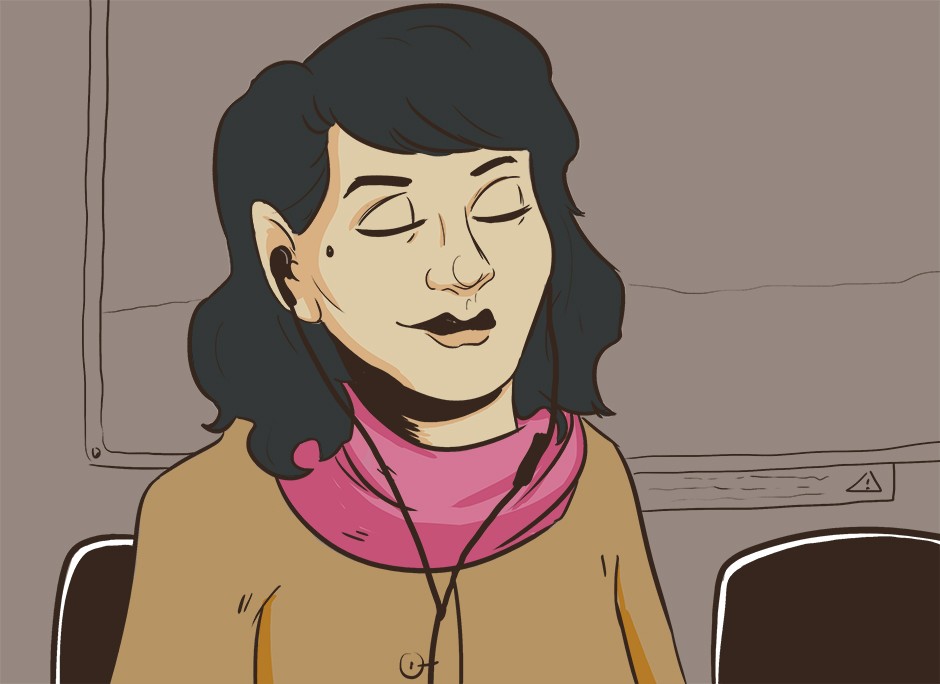The popularity of podcasts has always surprised me.
I’ve traditionally thought of podcasting as the awkward half-sibling to music and television, with the benefits of neither; I can’t sit down and binge podcasts exclusively for two hours, but I also can’t keep them on as background noise while studying.
Until last year, I never would have considered podcasts as an entertainment option. Although I feel like I’m late to the party, it’s only recently that they really started capturing my attention. For a long time, they felt like a burden to listen to.
During the past year, with so little social interaction, I found myself missing being able to hear humans talk about everyday subjects — nothing academic, just the minutiae of life. I never realized how much space in my life is filled by conversational white noise. I missed the experience of being in a social setting and catching the occasional fragment of a stranger’s conversation. In general, I missed being around people.
In some ways, podcasts were able to replicate that atmosphere for me. I gravitated toward conversational ones like Anything Goes with Emma Chamberlain, keeping them on in the background while going about my mindless tasks to mimic that coffee shop experience. They had enough structure to keep me actively engaged, but they also weren’t scripted to the extent of a piece of media like an audiobook. Instead, they felt like an organic conversation. For me, these podcasts replicated a social atmosphere in the absence of actual social activities, filling in the loneliness.
Recently, I started seeing a lot more conversations about podcasts, especially on social media. I started seeing more advertisements targeted for them and learned about new series from my friends’ Instagram stories. It suddenly struck me that podcasts had become genuinely popular.
In an email to The Varsity, Joshua Gans, a professor of strategic management at the Rotman School of Management, wrote about why he thinks podcasts have gained popularity recently. The key, he thinks, is technology.
“We got to a critical threshold where enough people had phones and data was cheap enough to make it a thing for people’s commutes,” he wrote. That, along with improvements in headphone quality, made it easier for many of us to fit podcasts into our daily routines.
This fits with the listening habits of many U of T students who I’ve spoken to casually. They usually keep a podcast on as background noise for some other activity, like commuting or working out. For them, podcasts provide more engaging content to focus on instead of an alternative like music. Since they can be easily downloaded on apps like Spotify, podcast episodes are a convenient on-the-go option, perfect for the busy schedules of student listeners.
It also helps that the podcast genre has become so diverse, offering something to listeners of all tastes and preferences. U of T students have a myriad of interests, from horror fiction to mental health.
Following the path of YouTube, the podcast has become an accessible medium that lets anyone, from major news companies to independent creators, start their own show. Now, there’s a podcast for every niche. Tired of rewatching Gilmore Girls alone? Have fun listening to Gilmore Guys, where two men watch and provide commentary on the show episode by episode.
Even U of T’s campus groups have started producing their own podcasts, giving students a new way to engage with club activities without requiring their physical presence.
Vikram Nijhawan, co-president of Screenwriting at Victoria College (SVC), wrote to The Varsity about his experience with starting and co-hosting the club’s podcast, Fade In. Nijhawan explained that the podcast has allowed the club to create an extension of their usual film discussions during club meetings. “[The podcast brings] informative content to listeners, but also the opportunity to eavesdrop on a lively conversation,” he wrote.
The popularity of the podcast genre also made it seem like making a podcast is a reasonable project for any person to develop, which encourages people to take the initiative to begin one. Considering how Fade In helped SVC earn two funding awards, they consider it a successful venture. Like with YouTube channels, podcasts’ success depends on just as much the ideas of creators as they do the participation of listeners. So far, we’re definitely seeing their potential.
It certainly seems like podcasts have found a place within the university community. While I’m still not sure they’ll ever become my first option for entertainment, I think they’re nonetheless deserving of our attention.
Whether you’re looking for a good laugh or, like me, the experience of human connection, podcasts can provide the company you need. They could have easily become a mere spinoff of radio, but with the help of accessible technology and social media, they’ve cemented a spot in our future.


